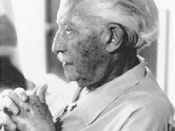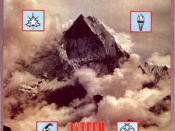SELF-CONCEPT
Self-concept is the capability of being able to see ourselves "from the outside"; the picture we gain of how other see us. This picture affects the way in which we take care of ourselves physically, emotionally, and in the way we treat others. People who have a low self-concept may feel that they are not worth others attention or care. The development of self-concept does not always depend on accurate evaluations. Even if we grossly misinterpret our self-image those misjudgments become part of our everyday lives.
Self-concept consists of four components, body image, self -esteem, identity, and role performance. These components are influenced by: 1) how others react to our bodies, and behaviors. 2) Our own expectations of ourselves. 3) Prior experiences. 4) Present feelings about self. 5) Spiritual identity. 6) Personality structure. 7) Perceptions of stimuli that have an input on the self. 8) Relationships with self, and others.
(Perry, Potter 2001). A person's self-concept can be altered by stressors affecting any or all of the four components. If a person cannot overcome or adapt to these stressors illness may result.
BODY IMAGE
When you stand in front of the mirror do you like what you see? Body image is how you see, and feel about your physical appearance. Your perceptions are affected by cognitive growth and physical development. Normal developmental changes such as growth and aging have a great impact on body image. Puberty is an especially difficult time for teens dealing with body image. The body goes through many changes when puberty starts. These changes make it difficult for teens to judge whether they are normal or not. Our perceptions of body image are also affected by aging. Wrinkles, gray hair, impaired vision, decrease in hearing, and mobility are just a few examples of the changes...



Excellent.
This was a very thought out paper. And gave myself some very interesting ideas. Very high ratings from me!!!!
5 out of 5 people found this comment useful.